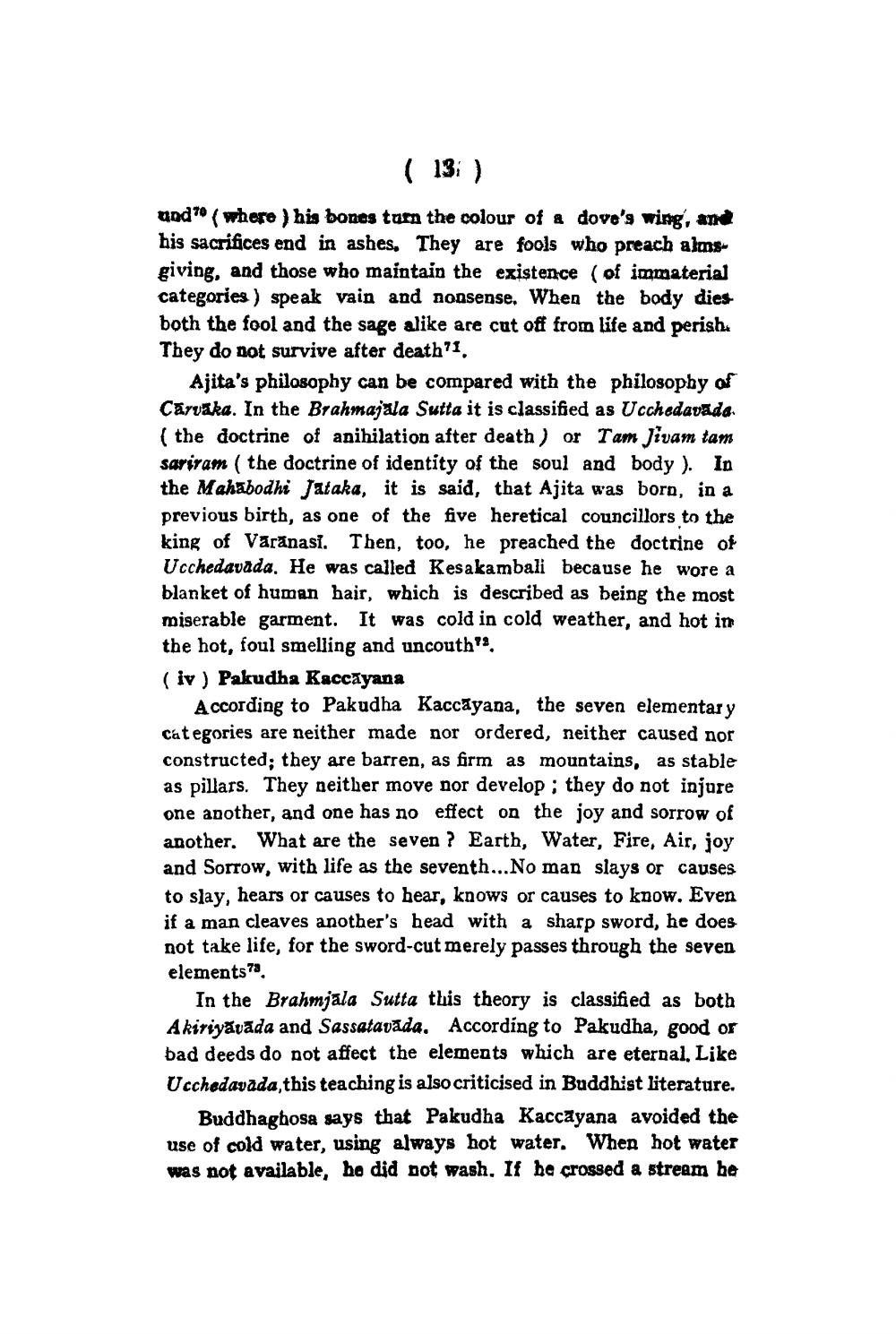________________
god (where his bones turn the colour of a dovo's wing, and his sacrifices end in ashes, They are fools who preach almsgiving, and those who maintain the existence (of immaterial categories ) speak vain and nonsense. When the body dies both the fool and the sage alike are cut off from life and perishe They do not survive after death".
Ajita's philosophy can be compared with the philosophy of Carvaka. In the Brahmajala Sutta it is classified as Ucchedavada (the doctrine of anihilation after death) or Tam Jivam tam sariram ( the doctrine of identity of the soul and body ). In the Mahabodhi Jataka, it is said, that Ajita was born, in a previous birth, as one of the five heretical councillors to the king of Varanasi. Then, too, he preached the doctrine of Ucchedavada. He was called Kesakambali because he wore a blanket of human hair, which is described as being the most miserable garment. It was cold in cold weather, and hot im the hot, foul smelling and uncouth". (iv) Pakudha Kaccayana
According to Pakudha Kaccāyana, the seven elementary categories are neither made nor ordered, neither caused nor constructed; they are barren, as firm as mountains, as stable as pillars. They neither move nor develop; they do not injure one another, and one has no effect on the joy and sorrow of another. What are the seven ? Earth, Water, Fire, Air, joy and Sorrow, with life as the seventh...No man slays or causes to slay, hears or causes to hear, knows or causes to know. Even if a man cleaves another's head with a sharp sword, he does not take life, for the sword-cut merely passes through the seven elements
In the Brahmjala Sutta this theory is classified as both A kiriyāvada and Sassatavada. According to Pakudha, good or bad deeds do not affect the elements which are eternal. Like Ucchedavada, this teaching is also criticised in Buddhist literature.
Buddhagbosa says that Pakudha Kaccayana avoided the use of cold water, using always hot water. When hot water was not available, he did not wash. If he crossed a stream he




